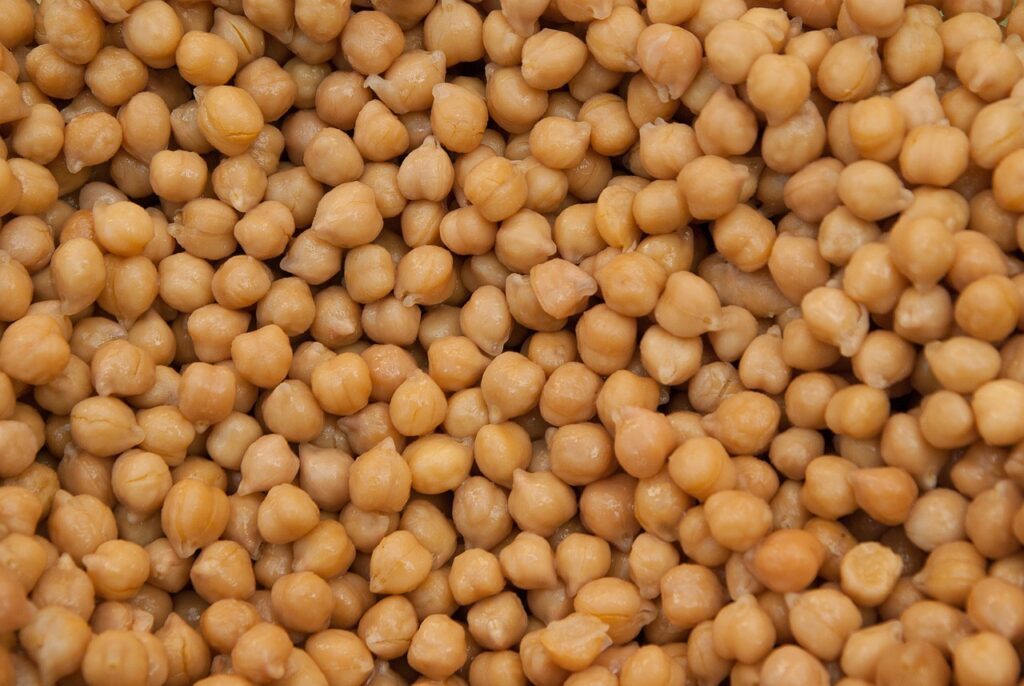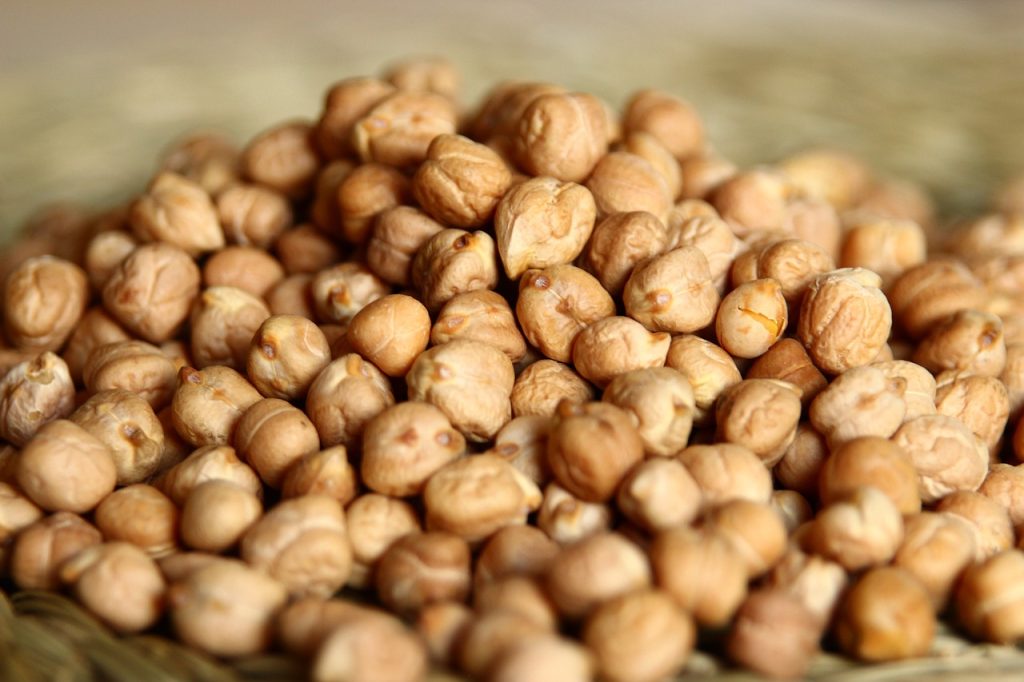Chickas, also known as garbanzo beans, have been a staple in diets around the world for thousands of years. From hummus to curries, salads to stews, these versatile legumes are not only delicious but also packed with nutrients that can significantly benefit your health.
Whether you’re a seasoned chickpea enthusiast or new to this humble legume, let’s dive into the benefits, nutritional value, and a few contraindications to keep in mind.
The Nutritional Value of Chickpeas
Chickpeas are a nutrient-dense food, meaning they provide a high amount of vitamins, minerals, and other beneficial compounds relative to their calorie content. Here’s a breakdown of what a 1-cup (164g) serving of cooked chickpeas offers:
- Calories: 269
- Protein: 14.5g (an excellent plant-based protein source)
- Fiber: 12.5g (nearly 50% of your daily recommended intake)
- Carbohydrates: 45g (including complex carbs for sustained energy)
- Fat: 4g (mostly healthy unsaturated fats)
- Vitamins and Minerals:
- Folate (71% of the Daily Value, DV)
- Iron (26% DV)
- Phosphorus (28% DV)
- Magnesium (20% DV)
- Zinc (17% DV)
- Vitamin B6 (13% DV)
Chickpeas are also rich in antioxidants, including polyphenols, which help combat oxidative stress and inflammation in the body.
Health Benefits of Chickpeas
- Supports Digestive Health
The high fiber content in chickpeas promotes healthy digestion by preventing constipation and supporting a balanced gut microbiome. The fiber also acts as a prebiotic, feeding the beneficial bacteria in your gut. - Promotes Heart Health
Chickpeas are heart-friendly due to their fiber, potassium, and magnesium content. They help lower LDL (bad) cholesterol, regulate blood pressure, and reduce the risk of heart disease. - Aids in Weight Management
The combination of protein and fiber in chickpeas helps you feel full and satisfied, reducing the likelihood of overeating. This makes them a great addition to weight-loss or maintenance diets. - Stabilizes Blood Sugar Levels
Chickpeas have a low glycemic index, meaning they release sugar slowly into the bloodstream. This makes them an excellent choice for people with diabetes or those looking to manage blood sugar levels. - Boosts Plant-Based Protein Intake
For vegetarians, vegans, or anyone looking to reduce meat consumption, chickpeas are an excellent source of plant-based protein. They provide all nine essential amino acids, though pairing them with grains like rice can create a complete protein profile. - Supports Bone Health
Chickpeas are rich in calcium, magnesium, and phosphorus, all of which are essential for maintaining strong bones and preventing osteoporosis. - Rich in Antioxidants
The antioxidants in chickpeas, such as polyphenols, help reduce inflammation and protect against chronic diseases like cancer and heart disease.
Potential Contraindications and Considerations
While chickpeas are incredibly healthy for most people, there are a few situations where caution is advised:
- Digestive Issues
For some individuals, the high fiber content in chickpeas can cause bloating, gas, or discomfort, especially if consumed in large quantities. To minimize this, start with smaller portions and gradually increase your intake. Soaking dried chickpeas before cooking can also help reduce these effects. - Allergies
Although rare, some people may have an allergy to chickpeas or other legumes. Symptoms can include itching, swelling, or difficulty breathing. If you suspect an allergy, consult a healthcare professional. - Kidney Stones
Chickpeas contain oxalates, which can contribute to the formation of kidney stones in susceptible individuals. If you have a history of kidney stones, it’s best to moderate your chickpea intake and consult your doctor. - Antinutrients
Like other legumes, chickpeas contain antinutrients such as phytic acid, which can reduce the absorption of certain minerals like iron and zinc. Soaking, sprouting, or cooking chickpeas can help reduce these antinutrients.
How to Incorporate Chickpeas into Your Diet
Chickpeas are incredibly versatile and can be used in a variety of dishes:
- Hummus: Blend cooked chickpeas with tahini, lemon juice, garlic, and olive oil for a creamy dip.
- Salads: Add chickpeas to salads for extra protein and texture.
- Curries and Stews: Chickpeas are a staple in dishes like chana masala or Moroccan tagines.
- Roasted Snack: Toss chickpeas with olive oil and spices, then roast them for a crunchy snack.
- Baking: Use chickpea flour in gluten-free baking or as a binder in veggie burgers.

Chickpeas are a true superfood, offering a wide range of health benefits backed by their impressive nutritional profile. From supporting heart health to aiding digestion and weight management, they’re a fantastic addition to any diet. However, it’s important to be mindful of potential digestive issues, allergies, or other contraindications, especially if you have specific health conditions.
Whether you’re enjoying them in a hearty stew, a zesty salad, or a creamy dip, chickpeas are a delicious and nutritious way to fuel your body.
So, why not start experimenting with this versatile legume today? Your taste buds—and your health—will thank you!

